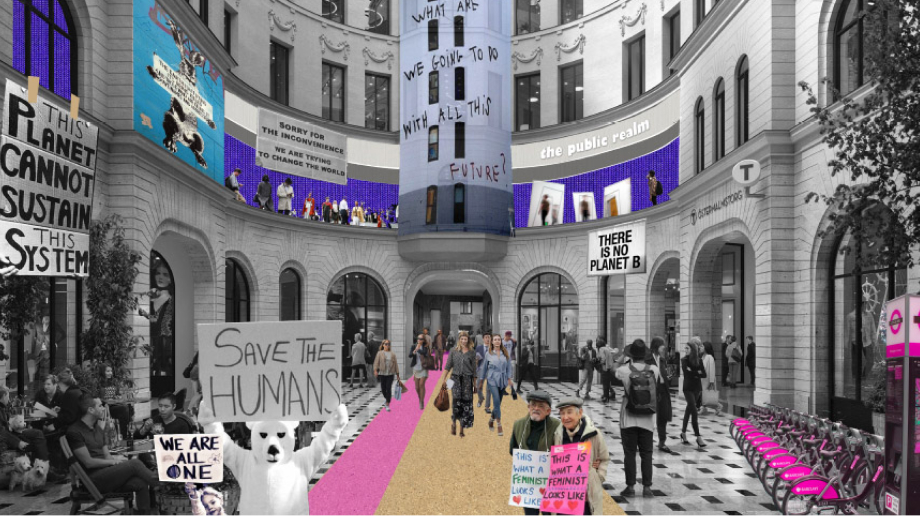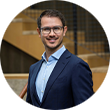MSc Sustainable Urban Planning and Design
The master's programme in Sustainable Urban Planning and Design focuses on the correlation between the built environment and social, economic and institutional forces. Students gain a profound and broad understanding of the multiple factors in sustainable urban development. Project work provides students with strong practical skills. Graduates have the expertise to adapt planning and design practices to the environmental conditions and societal needs of the future.

Sustainable Urban Planning and Design at KTH
The programme brings together students of architecture, planning, civil engineering and natural and social sciences. You are equipped with theoretical knowledge and professional tools that position them as critical links, joining multiple perspectives in sustainable planning and design processes relevant in Sweden and worldwide. Coursework includes substantial time spent in studios and on projects that train you in practical skills and give you a deep understanding of planning and design practice.
The programme offers three specialisations pursued through recommended course combinations, representing different professional competencies in sustainable urban planning and design. You can also broaden your knowledge by making your own combinations of courses. During the programme, students interact across the specialisations in courses and projects that foster a mutual exchange of knowledge and ideas.
Specialisations
Urban Planning and Design
Urban and Regional Planning
Environment and Planning
All students take part in the introduction course that presents the subject and deepens their understanding of how planning and design practices can enhance sustainable urban development. After this course, you choose one of the specialisations with recommended courses addressing different methodological, theoretical and practical aspects of urban design and planning. The spring semester includes a mandatory course that aims to develop students' research skills within the scope of the programme.
The third semester deepens the students' specialisation by integrating accumulated knowledge into applied project work. Projects are supported by several core courses highlighting conceptual and analytical approaches. The programme concludes with a degree project carried out in the fourth semester. The degree project allows you to investigate a problem in-depth under the supervision of experienced practitioners and researchers.
Throughout the programme, invited lecturers from local/regional authorities, consultancies, and other private actors will give students insights into the contemporary practice of planning and design in Sweden and abroad. In studios and on project assignments, you work with ongoing city development projects in the Stockholm region, which allow you to apply your knowledge in sustainable planning and design in a practical setting.
This is a two-year programme (120 ECTS credits) given in English. Graduates are awarded the degree of Master of Science. The programme is given mainly at KTH Campus in Stockholm by the School of Architecture and Built Environment (at KTH).
Courses in the programme
The courses in the programme cover topics such as urban planning, social sustainability, regional development, public space, urban form, green cities, community participation, sustainable transport, urbanism, resilience.
Courses in the master's programme in Sustainable Urban Planning and Design
Future and career
The programme prepares students as professionals in a growing and meaningful field, building a thorough understanding of the planning and design process and aesthetic, social, environmental, economic and institutional factors that contribute to sustainable urban development. After graduation you are ready to take on roles such as city architect, urban planner, project leader, sustainability consultant, architect, traffic planner, urban designer, environmental planner. Graduates from this programme work with urban and regional planning, environmental planning and urban design in public organisations, private companies, research institutes and NGOs. Examples of public organisations are municipalities responsible for urban planning and development, regional development authorities, environmental protection authorities and national transport administrations, which employ nearly half of the graduates. The private sector, which includes architectural, planning and policy consultancy firms and project developers, employs almost half of the graduates. The remaining 5–10 per cent go on to doctoral studies at KTH and abroad or work in NGOs. Graduates have gone on to PhD studies, among others, at University of Antwerp, Stockholm University, National University of Athens, University of Bern and Swansea University.
Sustainable development
Graduates from KTH have the knowledge and tools for moving society in a more sustainable direction, as sustainable development is an integral part of all programmes. The three key sustainable development goals addressed by the master's programme in Sustainable Urban Planning and Design are:


Equity and equality are core qualities of sustainable societies, involving, for example, equal access to housing, public services and transport systems. The causes and consequences of inequality are analysed in courses such as Introduction to Urban Economics and Planning Theory and Urban Governance. In project courses, students will learn to address equality issues in urban planning and design.
Cities and communities are the objects of study in the programme, with sustainability as the goal. Throughout the programme, you will be introduced to different tools, methods and concepts that will enable you to address sustainability issues in local contexts and to develop strategies and solutions that contribute to sustainable cities and communities.
To minimise the environmental impact of urban development, innovative solutions are required. Through exercises and lectures, students will be encouraged to incorporate new technologies, sustainable materials and green solutions, and strategies that reduce the need for urban expansion in their proposals to enhance ecosystem services and sustainable management of natural resources.
Faculty and research
The programme spans disciplines within an increasingly important field within the KTH School of Architecture and the Built Environment. The school provides multi-disciplinary research and teaching, an environment ranked 26 in the world in the latest QS World University Rankings by Subject (Architecture and Built Environment).
The programme benefits from interdepartmental expertise in engineering, architecture, natural and social science at the Department for Environment and Planning, the school of Architecture, and the Department for Sustainable Development, Environmental Science and Technology.






